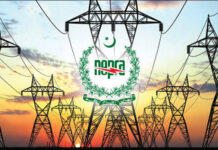Rating agency Moody’s affirmed the B3 long-term deposit ratings of five leading Pakistani banks and changed their outlook to negative from stable. According to Moody’s, the negative outlook is driven by Pakistan’s heightened external vulnerability risk and uncertainty around the sovereign’s ability to secure additional external financing to meet its needs.
The negative outlook of leading Pakistani banks
The five Pakistani banks downgraded to negative from a stable outlook include Allied Bank Limited (ABL), Habib Bank Limited (HBL), MCB Bank Limited (MCB), National Bank of Pakistan (NBP), and United Bank Limited (UBL). According to Moody’s; “Today’s rating actions follow Moody’s decision to change the government of Pakistan’s B3 ratings to negative from stable on June 2, 2022, and also lower the country’s local and foreign currency country ceilings to B1 and B3, from Ba3 and B2, respectively.”
According to the rating agency, the negative outlook on the bank ratings reflects
1) The rated banks’ sizable holding of securities holdings, predominantly sovereign debt securities, at between 5-8 times their shareholders’ equity, which links their creditworthiness to that of the government
2) The risk of a further weakening in the government’s capacity to support the banks in case of need. The banks’ outlook could change back to stable if the sovereign rating outlook is stabilized and the banks maintain their resilient financial performance.
Pakistan’s outlook downgraded to negative
A week back, Moody’s downgraded Pakistan’s position from stable to negative, citing heightened external vulnerability. The rating agency said that the country’s weak institutions and governance strength had added uncertainty around the future direction of macroeconomic policy, including whether Pakistan would complete the International Monetary Fund’s (IMF) Extended Fund Facility (EFF) program and maintain a credible policy path that supports further financing.
Read more: Pakistani Factories Are on the Verge of Closing Down Due to Sky-High Energy Costs























